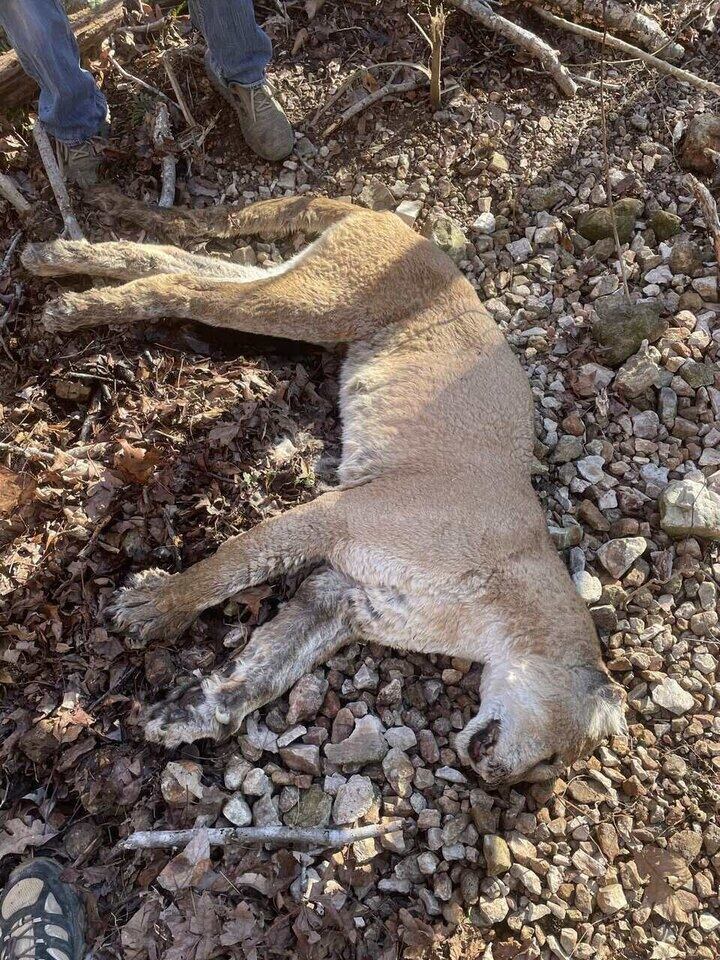
A mountain lion recently was found dead on Sylamore Wildlife Management Area in northern Stone County by a U.S. Forest Service employee. A necropsy was performed on the adult male Thursday.
There was no evidence that the mountain lion died of a bullet wound and there were no injuries consistent with being hit by a car, according to AGFC State Wildlife Veterinarian Jenn Ballard.
“An adult, male mountain lion weighing 118 pounds and measuring approximately 85 inches in length was examined Thursday at the AGFC Calico Rock regional office,” Ballard said. “The carcass was moderately decomposed and was extremely thin. It had severely worn, broken and missing teeth, and the stomach was empty.”
Further examination will involve testing for viruses and toxins. Tissue from the animal also will be sent to the Southeastern Cooperative Wildlife Disease Study at the University of Georgia and the California Animal Health and Food Safety Laboratory at the University of California – Davis. This is the second mountain lion carcass found in the state in the last 10 years. In November 2014, a deer hunter shot and killed a 148-pound male mountain lion east of Hermitage in Bradley County. It was the first time a mountain lion had been killed in Arkansas since 1975. DNA from that animal revealed that it almost certainly came from a mountain lion sighted in September 2014 in southern Marion County.
According to lab results, the mountain lion killed in 2014 most likely originated in the Black Hills breeding population of Wyoming and South Dakota.
Mountain lions – also known as pumas and cougars – lived throughout Arkansas until about 1920. Over the years, several sightings have been reported in other parts of the state. There have been 23 confirmed mountain lion sightings in Arkansas since 2010. Mountain lions are solitary cats native to North America. They are typically shy and reclusive, and they rarely attack humans. In fact, mountain lions are more likely to be afraid of humans. They have learned to avoid people, and they usually run away if they hear or see humans.
The public is encouraged to contact their nearest AGFC office with any sightings of mountain lions with verifiable evidence.








